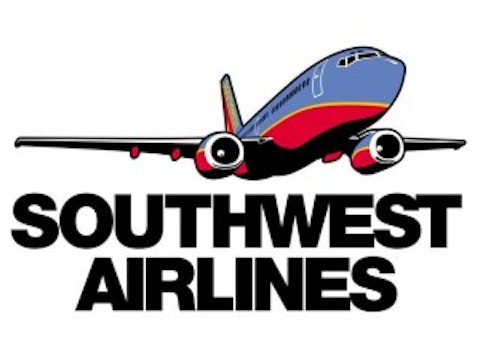

Southwest Airlines Co. (NYSE:LUV) 10-Year Price Chart, data by YCharts
However, Southwest may be finally turning a corner as it recognizes the benefits of integrating AirTran with the Southwest network. I’ve highlighted the risks of merger integrations going awry on various occasions, and investors should keep in mind the possibility that Southwest will hit a snag when it eventually moves to a new reservation and IT system. After all, United Continental Holdings Inc (NYSE:UAL) seemed to be in good shape until problems with IT integration led to major headaches for customers last year. Southwest’s slow pace of integration will probably minimize such problems, while the benefits of integration will lead to bigger profits in a year or two.
Optimizing the network
The first big opportunity for Southwest is optimizing its route network. This month, Southwest finished fully connecting the Southwest and AirTran networks with a “codeshare” arrangement that allows customers to connect between Southwest flights and AirTran flights. It also allows customers to book AirTran-only flights through Southwest. This initiative has shown immediate results. Since the two networks were fully connected, Southwest has averaged more than $3 million of bookings per day on connecting itineraries. The Southwest website has also become the largest booking channel for AirTran flights.
Southwest is planning to switch AirTran’s Atlanta hub operation to a point-to-point system beginning in November. Currently, AirTran flights are concentrated in the early morning and the evening in order to maximize the number of available connections. However, this setup increases costs compared to spreading flights more evenly across the day, and it is also less convenient for local passengers traveling to or from Atlanta. Southwest’s management expects that its new schedule will help it gain market share in Atlanta from top competitor Delta Air Lines, Inc. (NYSE:DAL) , which has its largest hub there. Higher local market share in a major market like Atlanta should provide a noticeable boost to Southwest’s unit revenue.
Cracking down on no-shows
Southwest also introduced a new policy for “no-shows” this week. Unlike virtually all of its competitors, Southwest has maintained a very generous policy by giving customers who don’t show up for their flights credits for the amount of their tickets (good for one year). Essentially, Southwest has not penalized “no-shows”, allowing customers to book multiple flights and only show up for the one that ends up being most convenient.
